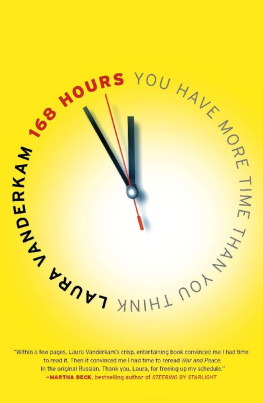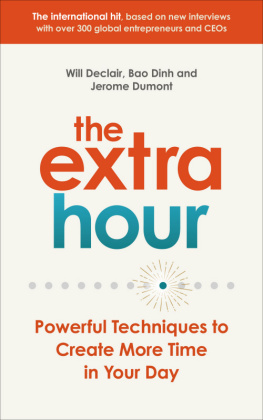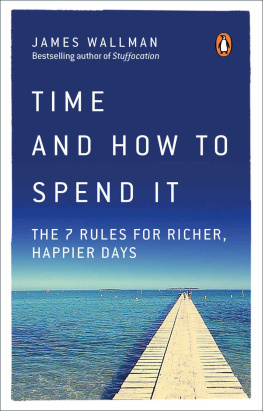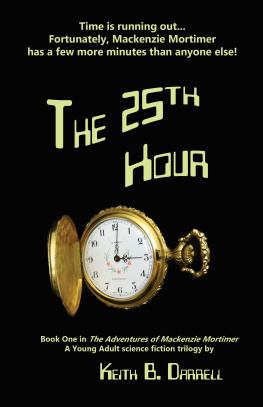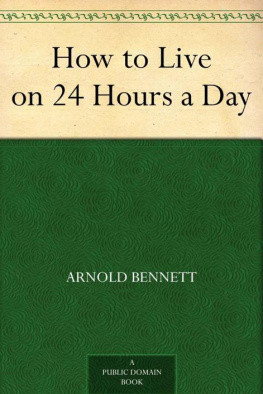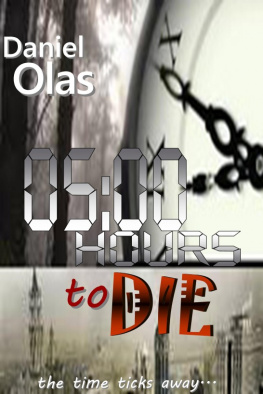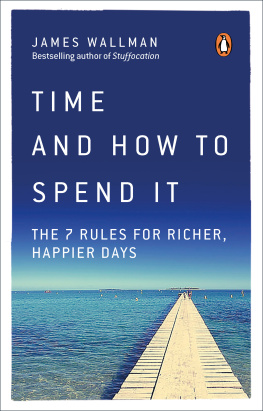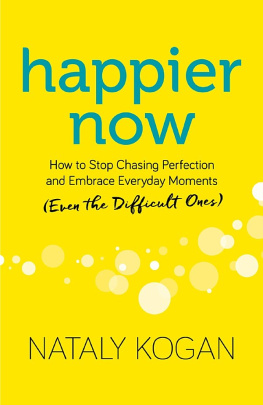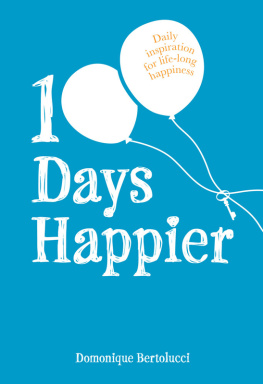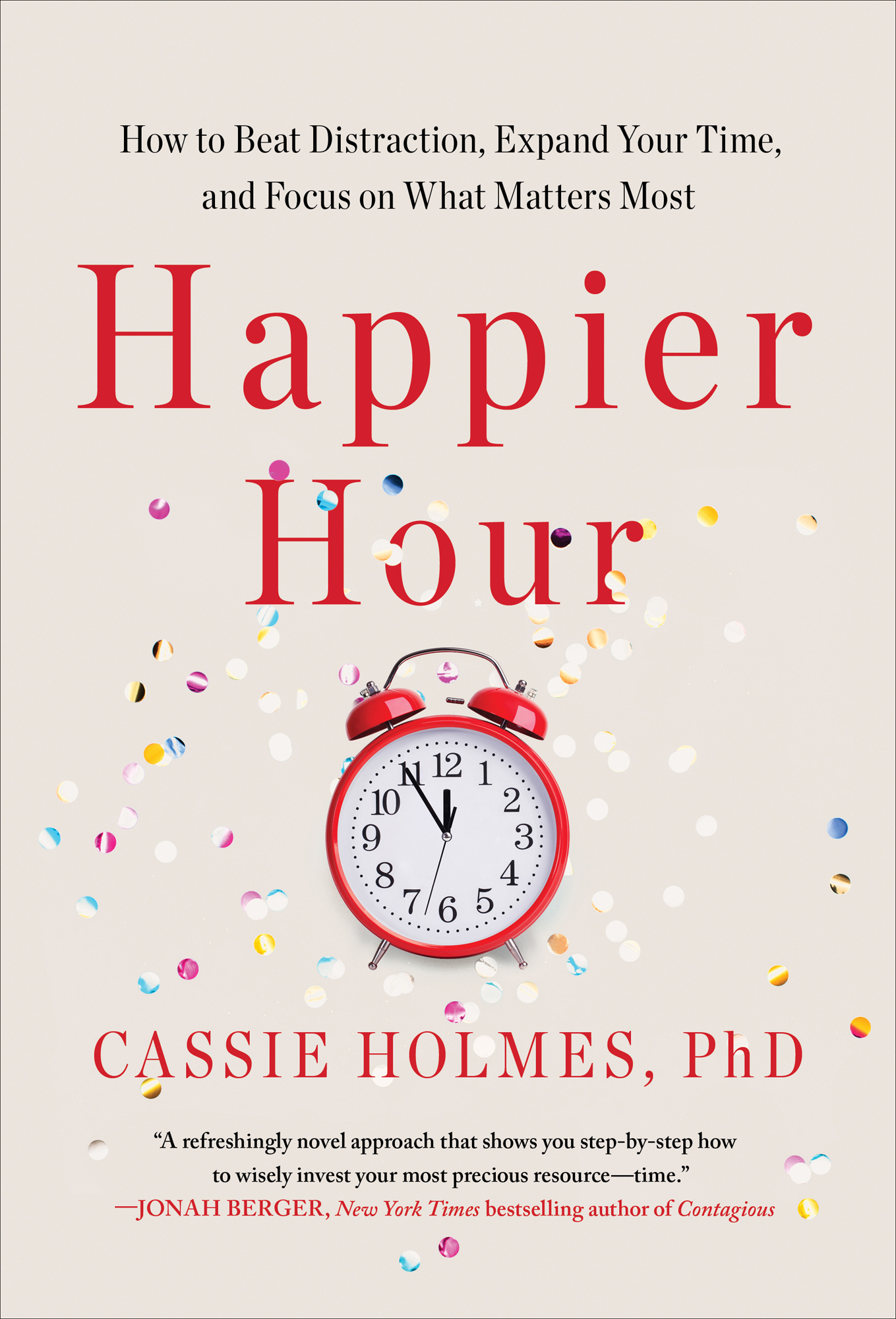Contents
Guide
How to Beat Distraction, Expand Your Time, and Focus on What Matters Most
Happier Hour
Cassie Holmes, PhD
A refreshingly novel approach that shows you step-by-step how to wisely invest your most precious resourcetime.
Jonah Berger, New York Times bestselling author of Contagious
To Rob, Leo, and Lita
For making my hours happier.
One TIME POOR AND TIRED
This time, like all times, is a very good one, if we but know what to do with it.
Ralph Waldo Emerson
I n 2013, I was sitting on the late-night train back from New York to Philadelphia and was contemplating quitting everything. Between trying to be a good parent and partner, the incessant pressure to publish and perform at work, the never-ending pile of choresit was all too much. There simply werent enough hours in the day to get it all done, let alone to do any of it well. The coordinating and preparing and doingit seemed to require a zesty superheros level of energy, and I had run out. I rested my forehead against the chilled window and watched the dark blur of trees and houses whiz by.
Id given a talk that day at Columbia Business School, sharing my latest research on how the quality of our happiness changes as we grow older. My presentation had been efficiently slotted into lunchtime, flanked by hours of back-to-back meetings, followed by a colleague dinner, throughout which I worked to stay on pace with the guys in witty banter and throwing back beers. Speeding in a taxi to the station, I prayed I wouldnt miss the last train home.
Though my typical days didnt begin in a New York City hotel room, they were similarly jam-packed and no less frenzied. Id wake at dawn to go for a run and come back for a quick snuggle with my four-month-old, Leo, before racing to get ready and dashing to my office. Inside the bustling halls of Wharton, Id hurriedly try to get my work done in between seminars and meetings. Then I would dash home to relieve our nanny at 6 p.m. Between putting the groceries away, preparing dinner, and cleaning up, even that precious hour before Leos bedtime felt rushed. None of these tasks alone took much time, but taken together, these minutes of doing-doing-doing were just too manyespecially given how few there were to spare.
Id felt this way for some time. As the train sped through the darkness, I pulled my coat over me like a blanket. Deeply exhausted, I realized that I needed to truly figure out if doing all of it was really sustainable. To accurately assess the feasibility of continuing on this course, I knew I had to account for everything. Not just my routine tasks, but also the unanticipated and extra exceptions that in aggregation happened regularly (e.g., haircut, dentist, Leos doctors appointment, picking out a gift, getting the car serviced, showing up for jury duty). Plus, I needed to include not just my to-do lists for work and home, but my determination not to flake on going out for my friends birthday dinner, and my decision to take Leo to his baby music class on Wednesday mornings. All of it needed to involve some exercise and a decent amount of sleep, because Im not nice without either. All of it needed to factor in whether Id still have enough energy to enjoy the moments I shared with Leo and my husband, Rob, at the end of the day.
The real problem I was wrestling with on the train that night was that I wanted to do it all. I loved my job. Not every piece of it, but I had worked hard to get to this point and found real fulfillment in conducting research and connecting with people through teaching. I adored my baby and husband, and I could not let either of those relationships suffer. I wanted to stay healthy and be a good friend. And even though I didnt like doing chores, it was important to me that I be a competent contributor to a well-functioning household and society.
Id felt busy before. In fact, I couldnt remember a time in which I hadnt felt like I was racing against the clock trying to achieve as much as possible during every hour. I am not alone in this. We live in a culture driven toward productivityso much so that busyness has become a status symbol that is taken to signal an individuals worth. But I knew, both personally and according to my research, that this rushing around does not feel fancy.
Yes, having a baby had loaded more onto my plate. I was no longer in charge of just myself and my career. Now I was fully responsible for another persons survival and well-being. But it was even more than the additional to-dos that came with a baby. Seeing him grow made me realize how quickly time was passing. Watching how much Leo had changed in just a few months highlighted how fast everything was flying by. I did not want to miss any of it simply because I was in a rush. I didnt want to speed past his childhood. I didnt want to speed through my life.
I wanted more time, but not just time to get more done. I wanted more so I could slow down to actually experience the hours that I spent. When looking at my life, I wanted to feel happy and not only see a blur. With my forehead on the cool window, watching the world outside speeding by, it suddenly seemed that quitting everything and moving to a sunny, slow-paced island somewhere was the optimal solution. Id invite Leo and Rob to join me.
The Wisdom of Data
As a social psychologist, Im constantly looking to data to find answers for whatever questions Im personally grappling with. (So really, Im only partially joking when I explain my work by telling people that I conduct me-search.) And I knew that before charging into my bosss office to tell him Id decided to leave my dream job as a tenure-track professor, I should carefully consider the realities of living with a whole lot more free time. Before I asked Rob to walk away from his career and pack for the beach, I needed to know whether Id indeed be happier trading an overflowing to-do list for a blank one. With more available hours in the day, would I actually feel more satisfied with my life?
To empirically guide me through this particular crisis, I recruited a couple of my favorite collaborators, Hal Hershfield and Marissa Sharif. We found a data set to analyze that captured, for tens of thousands of working and nonworking Americans, all of the activities constituting a regular day in their lives, as well as their overall satisfaction with their lives. This treasure trove of data meant that I wouldnt have to rely on advice from any one individual. Instead, we could identify significant trends across a large group of people, which would provide a much more reliable prediction. This data from the American Time Use Survey would help us answer the pressing question: What is the relationship between the amount of discretionary time people have in their daily lives and their overall happiness?
As a first step in our analysis, we calculated the varying amounts of time people had available to spend on discretionary activitiesthings people want to do. This included doing nothing, relaxing, and watching TV. It also encompassed more active leisure pursuits, like playing sports or going to the movies or sporting events. And it contained purely social activities, like hanging out with friends and family. Importantly, this calculation of available time did not incorporate the days hours spent on obligatory tasksthings people have to do. For instance, the litany of work tasks, household chores, dentist and doctor appointments, and errands were all grouped as nondiscretionary activities, counting as time that was unavailable.


